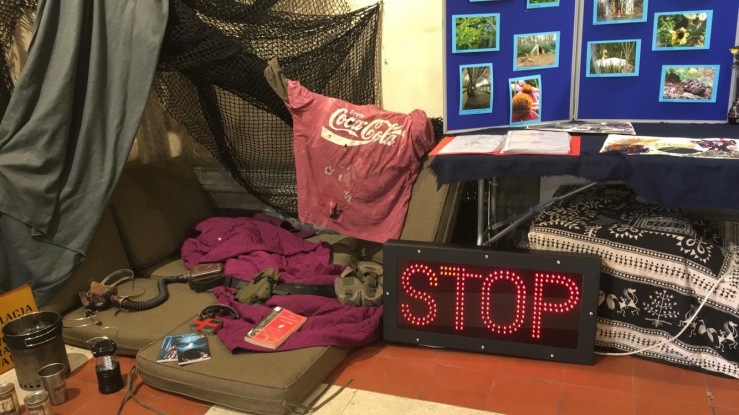Sometimes in a meeting or in other social situations we may come across people who have serious (or severe – they mean the same thing) mental illnesses. We may be worried about trying to support them or not know what to say in case we cause offence or somehow trigger an episode by talking about it. Understanding helpful things to say can mean that we are better able to support someone with a serious mental illness.
What do we mean by a serious mental illness? Isn’t every mental illness serious?
Yes, of course to the person going through difficulties, every mental illness is serious and this is not meant to suggest that illnesses such as depression or anxiety are not serious. We all appreciate how difficult life can be when it’s hard to get out of bed, you feel a deep sadness all the time or you’re too frightened to go to work, for example. However, the term serious mental illness is usually reserved for long lasting conditions and those that can have profound negative impacts on a person’s life and this includes such conditions as schizophrenia, bipolar, dissociative disorder, for example. Many people with serious conditions will also have depression and anxiety as part of their symptoms. We’ll call them SMIs from now on.
What might people do or say?
Some people might hear voices, see things that are not real or speak about things that could not possibly be true. Others might find that reality is rather different for them – the world might ‘feel wrong’ or they might ‘feel wrong’ in the world. Some people may talk about things that don’t make sense to most other people. Some may be very quiet as they are caught up in their own inner world. There are many ways that illness can affect people.
How can we help?
Somebody might disclose an SMI or symptoms that they feel quite embarrassed about or that they consider to be deeply personal. It’s important that we treat the person with respect and allow them to talk openly about their experiences without judgement or being overly concerned with details that they may wish to keep private.
Some things may seem absurd to you – and indeed they may do to the person concerned when they are not actively experiencing an episode of illness. It’s kind to react politely, and particularly not to laugh. Even if the person laughs themselves, of course you can see the humour in the situation, but be sure to acknowledge that you appreciate the experiences are quite serious and real to them at the time.
What should we say when people are sharing?
Leaving someone with an awkward silence at the end of their sharing could lead to the person feeling bad for having shared something that they know is unusual. They may feel embarrassed or worried that they have frightened the other members off. We know it’s not going to be possible for us to ‘fix’ their symptoms but we can do what we at Changes do best – support our fellow members. So perhaps you could acknowledge that their experience is distressing/frustrating/frightening/difficult or whatever is appropriate to what they have shared and ask if there is a way to help.
The member may share something and then wait to see what the reaction is – testing the waters. It might be appropriate to ask them how their illness or symptoms affect them to see if they want to talk more about it but respect their choice to say as much or as little as they wish to.
If a member is currently holding onto a belief that is clearly not true, it’s not helpful to try and convince them of this, even if that seems logical, and it’s also unhelpful to ‘play along’ as that can reinforce the belief. It’s better to say that although you might not see things in the same way, that you understand that it’s very real for them.
Let the member know that you appreciate them sharing something quite personal and show that you’re open to them talking about their challenges.
What else could we do?
Include the member in your social plans. SMIs can be very isolating and the person may feel separate even from the rest of the group.
Ask them what helps. It sounds obvious, but everyone is different.
If they seem to be becoming unwell perhaps ask them if they have a plan for what to do. You could gently suggest that it might be a good time to check in with their caregivers.
Encourage the member to set manageable goals but try not to bombard them with suggestions.
Above all treat the member with exactly the same respect as anyone else. People with SMIs are valuable members of our groups, often offering a lot of support and advice from their wealth of experience.
If you have any suggestions yourself for how we can help our friends with SMIs to feel more included and welcome, please leave us a comment below.



 So here we are, halfway through the week and we’ve had all manner of visitors to our exhibition so far: old friends, potential group members, people who work for other related organisations, people who have experienced difficulties with their mental health and have recovery stories to tell, people still having troubles and people concerned for others as well as some staff from the council building who have shown a real interest in what we do.
So here we are, halfway through the week and we’ve had all manner of visitors to our exhibition so far: old friends, potential group members, people who work for other related organisations, people who have experienced difficulties with their mental health and have recovery stories to tell, people still having troubles and people concerned for others as well as some staff from the council building who have shown a real interest in what we do. Bristol buddies do come and visit us at the Park St Vestibule at City Hall. We’re here until Friday with our exhibition to mark Mental Health Awareness Week. The sun is shining, people are starting to take an interest and we are happy to talk about Changes and Mental Health.
Bristol buddies do come and visit us at the Park St Vestibule at City Hall. We’re here until Friday with our exhibition to mark Mental Health Awareness Week. The sun is shining, people are starting to take an interest and we are happy to talk about Changes and Mental Health.
 Wednesday 8th March was International Women’s Day and one woman I heard justifiably eulogised on the radio was journalist Nellie Bly. Born in 1864 in Cochran’s Mills, Pennsylvania, USA, she is best known for going around the world, in the style of the fictional Phileas Fogg, only eight days faster. But she also made a great contribution to investigative journalism, especially in the cause of those being treated for mental illness.
Wednesday 8th March was International Women’s Day and one woman I heard justifiably eulogised on the radio was journalist Nellie Bly. Born in 1864 in Cochran’s Mills, Pennsylvania, USA, she is best known for going around the world, in the style of the fictional Phileas Fogg, only eight days faster. But she also made a great contribution to investigative journalism, especially in the cause of those being treated for mental illness.